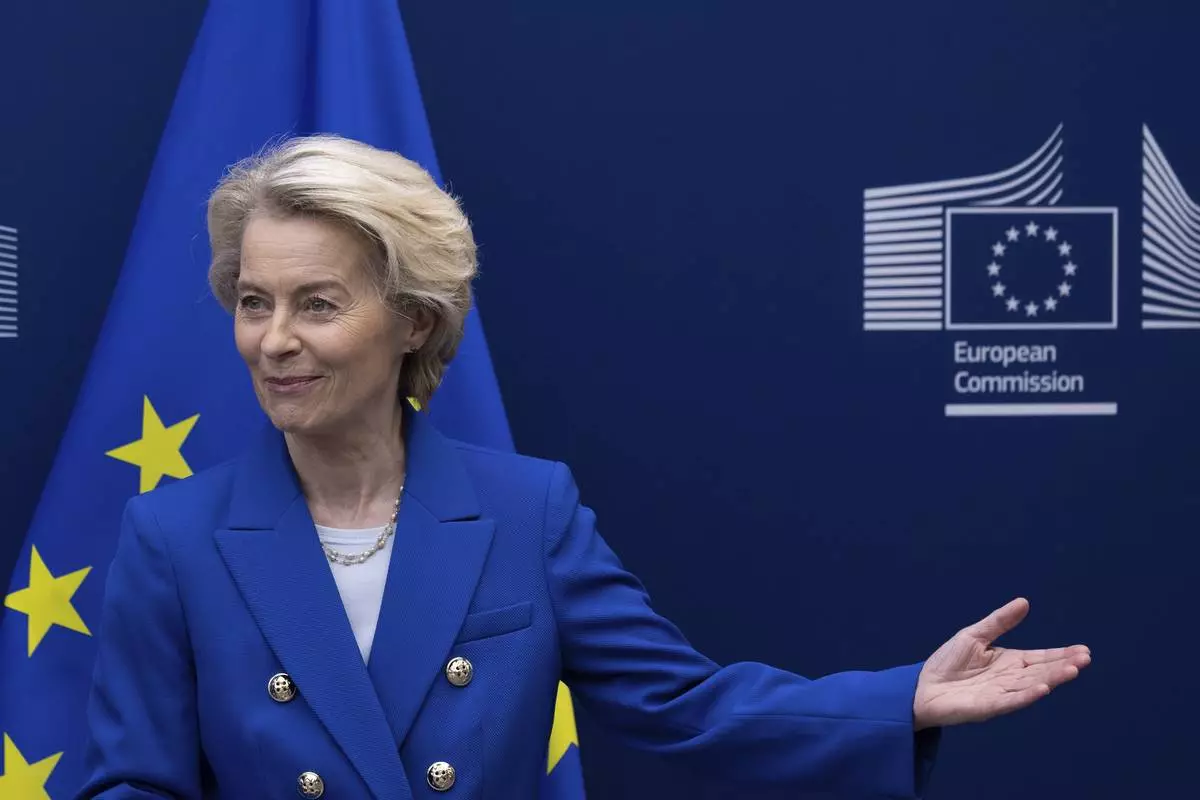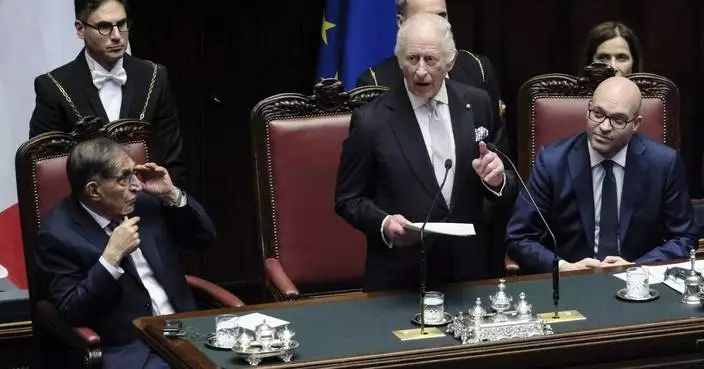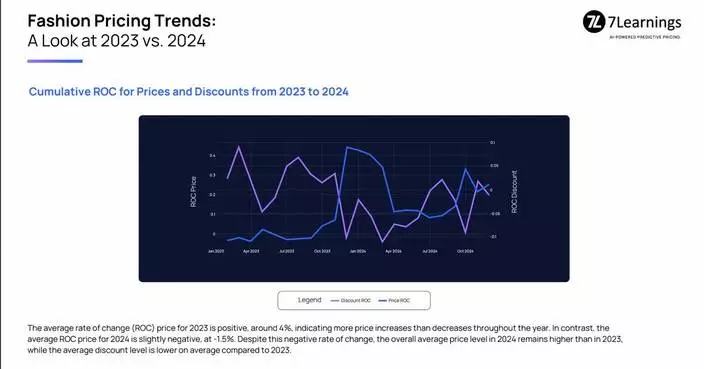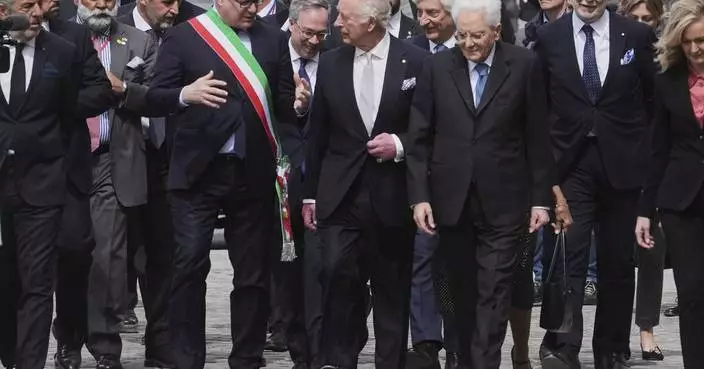WASHINGTON (AP) — A tentative deal has been reached with the Florida Republican leading a bipartisan push to allow proxy voting in the U.S. House for new parents, potentially ending a standoff that halted legislative work for days and threatened to delay a vote this week to advance President Donald Trump's agenda.
House Speaker Mike Johnson and Florida Rep. Anna Paulina Luna, who has been leading the bipartisan push on proxy voting, reached the deal, Luna said in a social media post on Sunday.
Rather than allow proxy voting, Luna said the agreement would formalize a “pairing” system long used in Congress where one member who is physically present in the House cancels out the vote of someone who is absent. Luna said the voting option would be open to all Republicans who are unable to vote, including new parents, the bereaved and lawmakers facing various medical and family emergencies.
“If we truly want a pro-family Congress, these are the changes that need to happen,” Luna said.
No further details were immediately available. It was also unclear if the deal would be agreed to by the other lawmakers who had signed on to the proxy voting proposal.
The agreement with Luna could end days of back-and-forth over allowing new parents in Congress to vote by proxy for 12 weeks as they care for their newborns. Johnson has vigorously opposed the effort, calling it an affront to the Constitution that would open “Pandora’s box."
But some Republicans refused to go along with Johnson's bid to kill the resolution, with nine of them defying him in a vote last week.
By reaching a deal, Republican leaders will likely be able to move ahead this week on key legislative priorities — most critically a revised version of the budget framework that opens the door to Trump’s push for trillions of dollars in tax breaks. The Senate approved that budget framework early Saturday morning after grinding through a late-night session.
Trump had said he was in favor of allowing proxy voting for new parents after speaking with Luna, though he said he would defer to Johnson how the House should operate. “I don’t know why it’s controversial,” Trump said.
Luna, who gave birth during her first term in Congress, had championed the proxy voting resolution alongside Democratic Rep. Brittany Pettersen of Colorado, who has a 4-month-old son. The effort drew significant bipartisan support, with 218 lawmakers — the majority of the House, many young parents themselves — signing onto a petition that could trigger a floor vote.
The resolution would allow proxy voting for lawmakers who have given birth or pregnant lawmakers who are unable to travel safely or have a serious medical condition. It would also apply to lawmakers whose spouses are pregnant or giving birth.
Pettersen, who has carried her son onto the floor during recent House votes, said the institution needs to change with the times. About a dozen women have given birth while in Congress over the years, and there are many new fathers as well.
“It is unfathomable that in 2025 we have not modernized Congress,” she said.
But Johnson, like GOP leaders before him, loathes proxy voting, which had been put in place for about two years during the COVID-19 lockdowns when Democrats had control of the House.
“It was quickly abused. Republicans put an end to it then, and we cannot allow it again,” Johnson said in a social media post.

House Speaker Mike Johnson of La., arrives before President Donald Trump speaks during an event to announce new tariffs in the Rose Garden at the White House, Wednesday, April 2, 2025, in Washington. (AP Photo/Mark Schiefelbein)
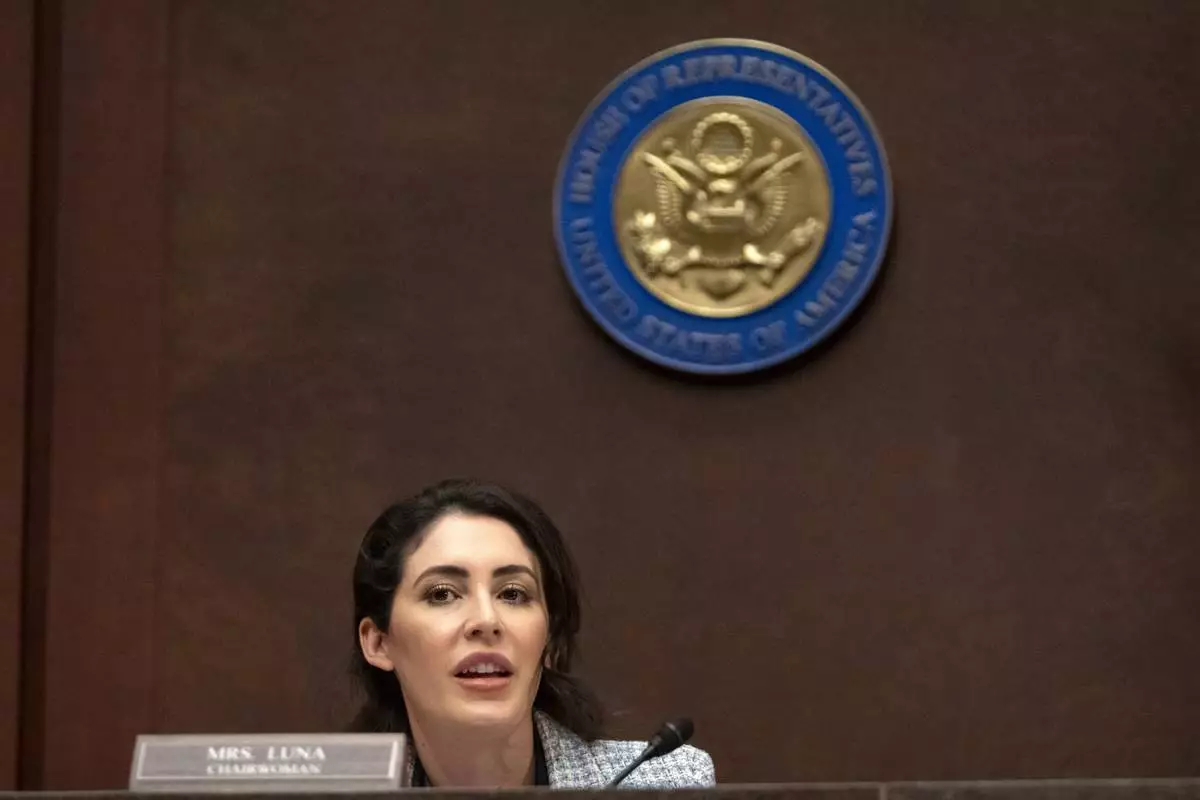
Rep. Anna Paulina Luna, R-Fla., speaks during a hearing of the House Task Force on the Declassification of Federal Secrets on Capitol Hill, Tuesday, April 1, 2025, in Washington. (AP Photo/Mark Schiefelbein)



